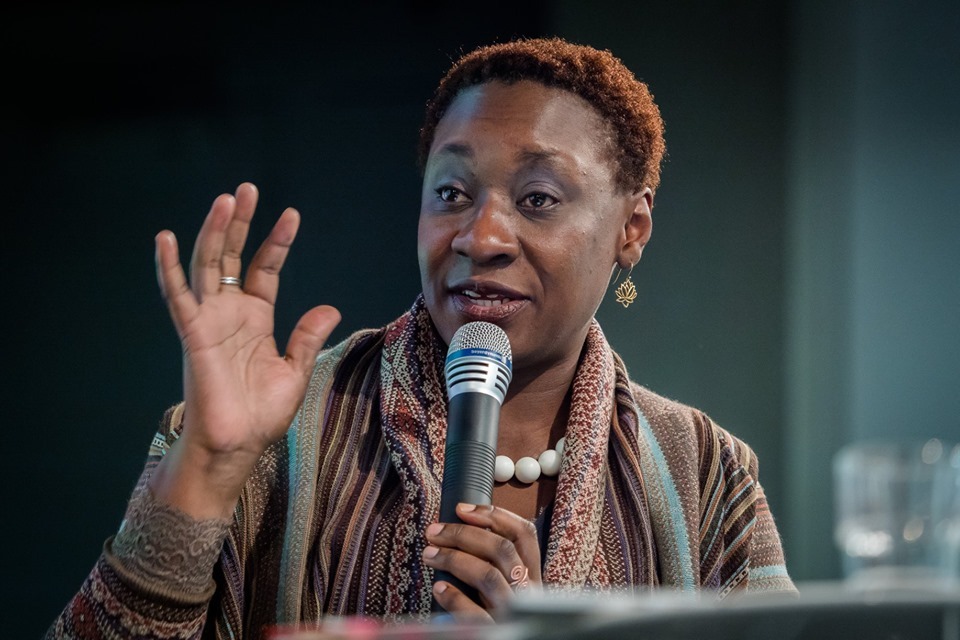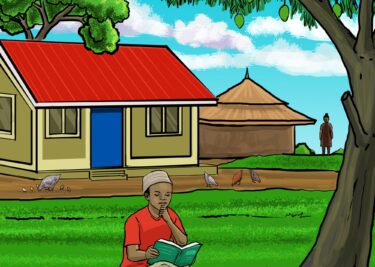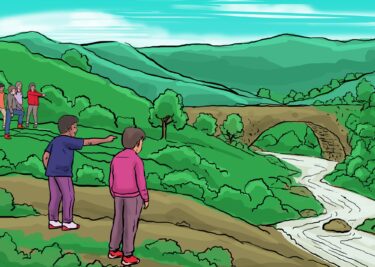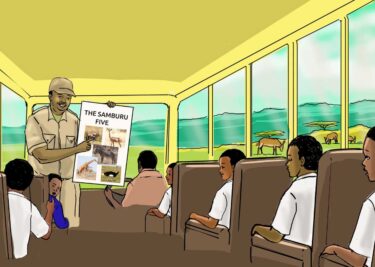A True Advocate for Diversity

Photo Copyright: Wikipedia
Maisha Auma’s love affair with Germany began at the tender age of 13. Even though she had never been to the country, there was something about it that spoke to the soul of the young girl living in Mombasa.
Courtesy of her schoolteacher mother, Maisha experienced the nomadic lifestyle from a young age. Born in Kisumu, she had attended three primary schools by the time she sat her KCPE exams. The first was Mbagathi Road Primary where her family lived in a house on the school compound where she watched the school empty out each afternoon and morph into her personal playground. Next was Hospital Hill, an option her mother secured for her by waiting in line overnight as was the norm to secure a place in one of Nairobi’s top schools in the eighties. Then, after a few years, her mother’s job took them to Loreto Convent Mombasa where the daily proximity to water awakened a new stirring in her and Maisha became a competitive swimmer.
Her Std. 8 performance won her a place at Kenya High School and so began the foundations of her foreign future. The school was a dream come true, because of the German language programme they had, and better yet, each year the school would host an exchange trip to Germany for those studying the language. Despite her mother’s hopes that she would attend a Catholic secondary school, off she went, steadfast in the pursuit of her dream. Maisha loved Kenya High – as a national school, it gave her insights to the reality of diversity, living with people who had experienced different lives from hers and who had different dreams for their lives from hers. It was a heady and edifying experience that left its indelible stamp on her.
Form Three came and the opportunity to sign up for the exchange trip was finally before her, only for her dreams to be crushed. Because the German exchange students had to have host families in Nairobi, Maisha was not eligible to participate. In tears, she saw her hopes dissipate before her. All that work, only for her home location to cause her heartache. But the gods must have been smiling upon her, for an uncle who lived in Nairobi stepped in, agreeing to host her and her German counterpart for the duration of the Kenyan portion. With that, she was off to Germany. Her first shock was finding herself in “shags.” She was sent to live with a family in a rural part of Schleswig Holstein, a province in northern Germany which is where she spent most of her month long-stay. Surprisingly, it turned out to be the best thing that could have happened as her German “mother” and her became quite close and she was the one who encouraged to consider applying to a German university after high school.
By the time she was back in Kenya, Maisha had the kernel of a plan. While she continued with her German lessons in school, she also registered at Goethe Institute for her language proficiency tests. She passed with flying colours and by the time she sat for her KSCE, she had already secured a visa to head north and fulfill the desires of her heart. To save up some money, she au paired for a year, and then joined Kiel University in 1992 to pursue a degree in Social Work. It was a pragmatic degree – one that would assure her a job upon completion, and it met her desire to work with people and understand issues of social dynamics in Germany.
Studying in northern Germany was no easy feat though. An intensely conservative and homogenous part of the country, Maisha faced her fair share of racism, including at her university. Once she graduated though, finding work was relatively easy – the challenge? She was working with victims of gender-based violence. Most were older than the 22-year-old graduate; they had been married and were German. All things she was not. But she found it within her to bring her professional self to the table and help them navigate their issues. For her, it was the beginning of a new journey – understanding the roots of patriarchy which sharply shaped her into the feminist she is. With her experiences, she went back to school to pursue her Masters, and then Doctorate, all the while working as a social worker. Her experiences and awakenings led to her dissertation around Race, Childhood and Powerlessness for which she received a cum laude degree. The thesis in the late nineties were viewed as radical in German society.
Maisha’s groundbreaking work led to an invitation to join Humboldt University in Berlin in the Gender Studies Department. After a scant two years, she joined the Magdeburg Stendhal University of Applied Sciences in their Diversity Studies department where she was subsequently awarded tenure.
Through her teaching and research, Maisha continues to be a keen advocate for diversity, inclusion, awareness and change in a country that struggles deeply with these issues. In a country experiencing population transition due to an increasing migrant population, her work has become increasingly important. In addition, Maisha belongs to an active group of women of colour who form a collective for understanding and pushing for women’s rights and feminist ideals in German society. It’s a cause that she is passionate about, and, through it, has met many like-minded changemakers.
From her birthplace in Kisumu to the centre of Germany, Maisha has covered a vast distance, but in doing so, she is fully living the potential and possibility of each step that she made along the way, using her personal experiences and Kenyan self
to make a difference in the minds of foreign students.
#KeDiaspora



